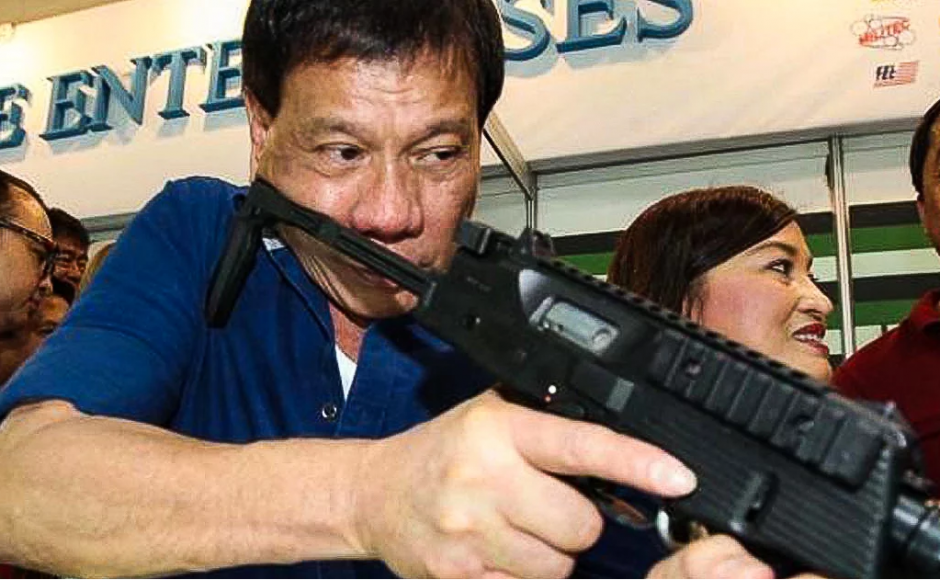A civil society-led truth commission could show the way forward to resolving the conflict between supporters and detractors of Duterte’s war on drugs.
In the past two months, news and police reports have catalogued over 2,400 drug-related killings.
The Philippine National Police (PNP) claims initial victory in the war against drugs with their tough approach, reporting a 40 per cent decrease in crime compared to last year’s record. The Commission on Human Rights (CHR), on the other hand, raises red flags, urging the police to adhere to due process and investigate the spate of bloody encounters with suspected criminals.
Public disagreement on Duterte’s war against drugs has been rife.
On the one hand, the Duterte fever continues.
A few weeks after assuming his post, the President had a 91 per cent trust rating – possibly indicating that the majority of Filipinos support his approach. A cursory look at social media posts illustrate public acceptance of the war’s “collateral damage”, that is, the killing of some innocent people for the sake of putting an end to the alarming drug problem.
On the other hand, critics decry the violation of the right to life.
Human rights lawyers and a handful of opposition politicians emphasised the lack of due process amid the spate of killings. In early August, the former CHR chair turned senator, Leila De Lima, led a Senate investigation of the killings.
Duterte responded by discrediting De Lima, raising issues about her “sordid personal and official life” that tie her to drug syndicates. Duterte supporters also charged the current CHR chair Chito Gascon of bias as a long-time Liberal Party boss tied to the camp of former President Noynoy Aquino.
Public commentators have reflected on ways to move forward.
Sociologist Nicole Curato underscored the importance of accountability, whether institutional accountability by the police or accountability in the public sphere, where citizens owe each other explanations for their views.
Human rights scholar Jayson Lamchek urged progressive groups to carefully examine the killings in the same way they investigate the extrajudicial killings (EJK) among their ranks. Civil society groups could launch an independent truth commission and conduct investigations.
There are a number of pathways to make these investigations happen.
First, well-established human rights groups like Karapatan and Task Force Detainees of the Philippines (TFDP), and their networks already have systems in place for similar investigations.
TFDP has released a statement condemning the killings and calling for an independent fact-finding body. But it is Karapatan, associated with leftists from a mainstream national democratic movement that supports Duterte, which is uniquely placed.
Political scientists Ronald Holmes and Mark Thompson have opined that the critical appetite of such leftists may have been dampened by Duterte’s offer of cabinet positions and peace talks. But if Karapatan could embark on this project without jeopardising their engagement with the Duterte administration, they may well be the decisive voice that could sway Duterte towards a more human rights-respecting approach.
Second, international human rights groups practice similar investigations and could get involved. This, however, may not be easy, as Duterte calls this “unwelcome meddling”. Civil society groups should urge the Duterte administration to accept the involvement of international groups to deepen the legitimacy of investigations.
Third, the justice movement iDefend, formed specifically in response to Duterte’s campaign, offer legal services to victims. These services could lead to investigations, similar to human rights investigative missions.
Civil society-led investigations could build on existing lists of the killings. Establishing links between human rights groups and victims’ families is the next major task. Suspected drug offenders are presumably not members of political organisations networked with human rights groups. The justice movement iDefend could bridge human rights groups and victims’ families.
The independent investigation’s findings will be important because they could help reshape the debates on the war against drugs and the issue of human rights. Civil society-led investigations will support and validate the investigations of the CHR and PNP.
It could, most importantly, clarify who is at fault. Police forces who truly defended their lives would be vindicated. Persons mistakenly identified as drug offenders would be cleared. Erring police forces would be charged. By following possible leads, unidentified assailants would be pursued. It could also establish cases where the criminals themselves are killing each other to silence their peers.
These independent investigations could enrich the data by “humanising” the numbers, whether among suspected criminals or the police ranks. Social researchers could contribute significantly in this aspect. “Humanising” the numbers is important because criminals or suspected criminals are often wrongfully portrayed to be less human and undeserving of due process.
Justice for each case should be served. Equally important, credible information is necessary for the public to affirm, question, or change their beliefs about their fellow citizens.
Civil society groups in the Philippines, known to be strong and dynamic, are well placed to embark on this project. We need the information now to act, and we need information in the future to do better in upholding the principle that “no person shall be deprived of life…without due process of law”.
Emerson M Sanchez is a PhD candidate at the Centre for Deliberative Democracy and Global Governance in the University of Canberra’s Institute for Governance and Policy Analysis.
Find out more about the Centre for Deliberative Democracy and Global Governance on Twitter and Facebook.
 Facebook
Facebook  Twitter
Twitter  Soundcloud
Soundcloud  Youtube
Youtube  Rss
Rss 